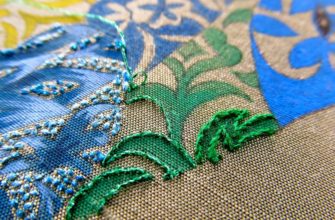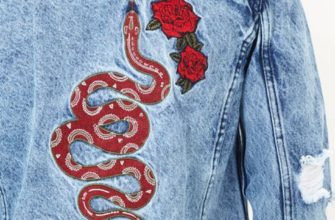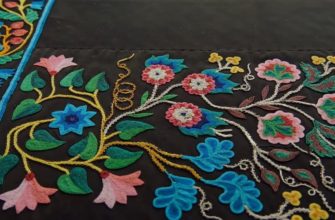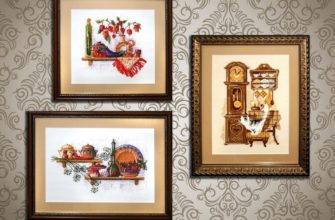After its appearance, tulle became one of the most common solutions for decorating the interior of any living room with window openings. Recently, tulle with embroidery has become increasingly popular. Such products are original, since any pattern can be applied to them. This allows you to emphasize the uniqueness of the room's decor and complete any composition or interior solution. This material will consider what tulle with embroidery is, what fashion trends exist in the field of embroidery on tulle.
Advantages
In addition to its original appearance, embroidered tulle mesh has many other advantages that do not cancel out the advantages of ordinary tulle:
- curtains of this kind last a very long time and retain a presentable appearance even after numerous washings;
- if made from synthetic materials (polyester), the product does not fade, does not lose shape and does not sag over all the years of use;
- embroidered tulle can be safely decorated with additional elements: rhinestones, beads, beads or ribbons;
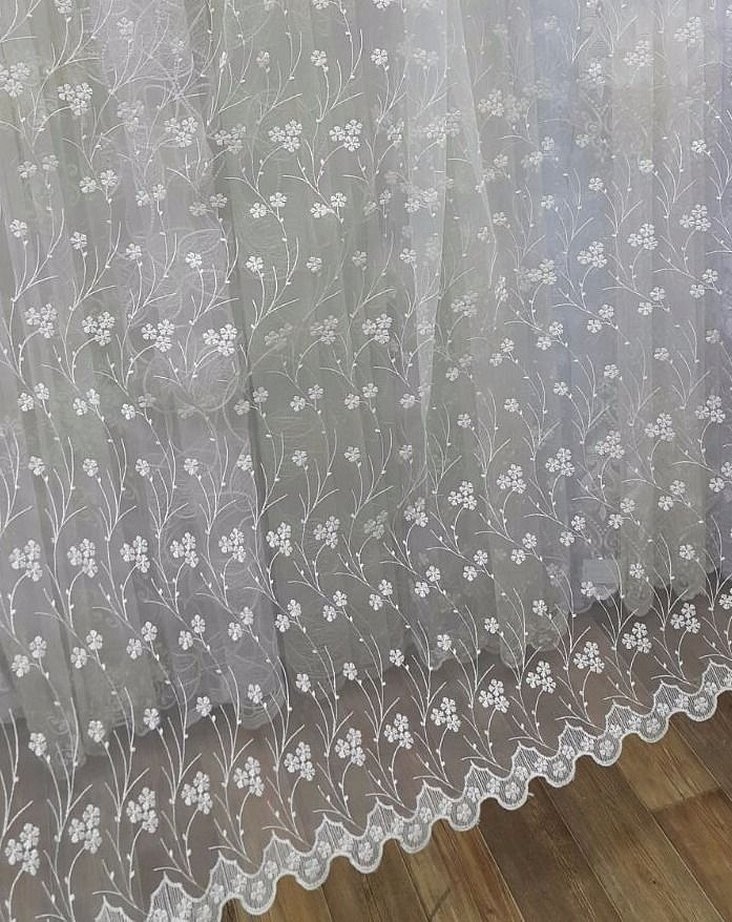
- if the color of the embroidery matches the general background, then the product can be safely bleached;
- easy to wash and quick to dry, which is also typical for simple samples;
- wide range of prices: there are both budget options and tulle for wealthy people.
Important! If the product is initially purchased for decoration with chains, laces or ribbons, then you should choose a tulle mesh from Turkey with or without embroidery (empty).
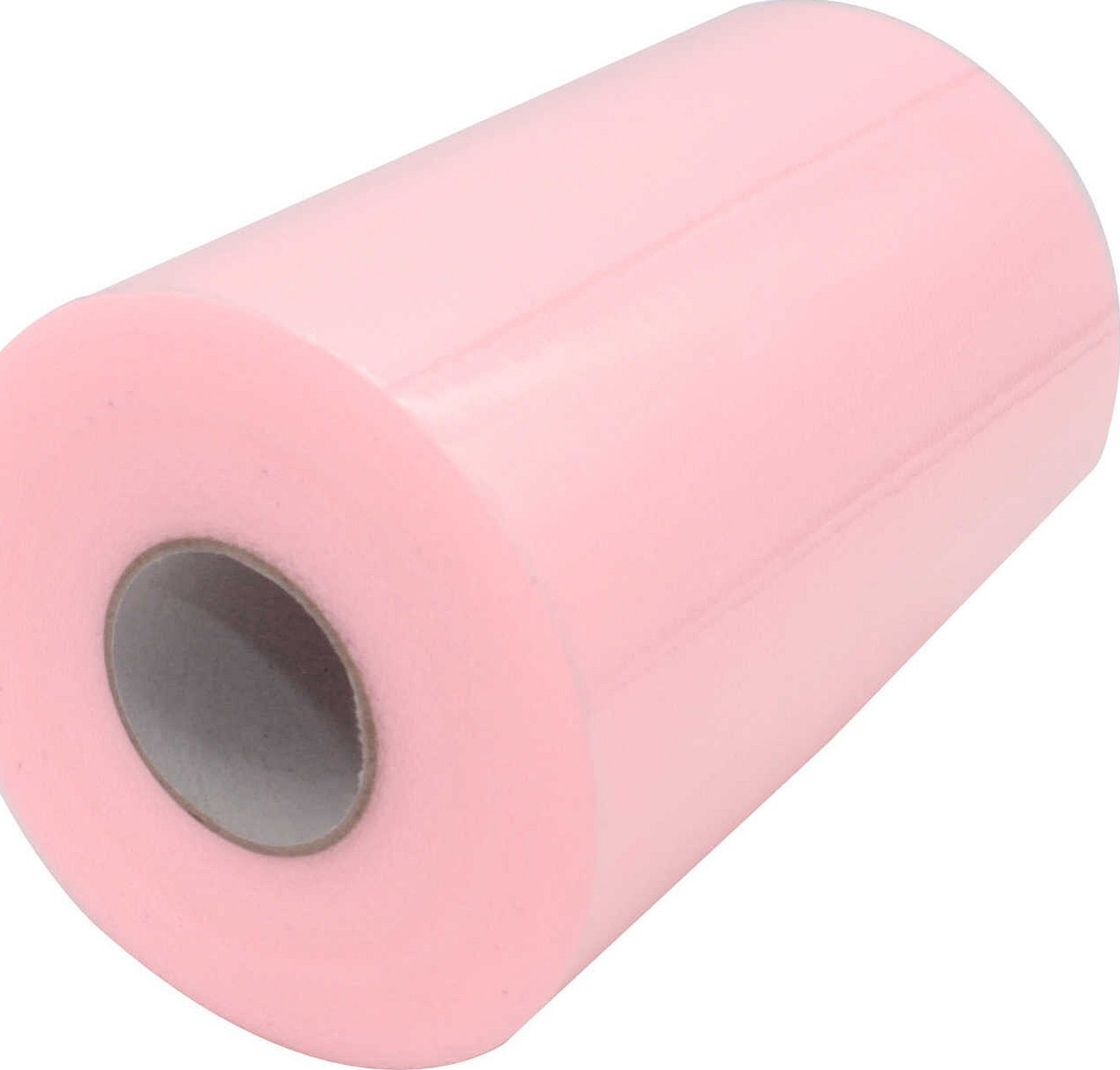
Fashion trends
The latest trends dictate the use of embroidery, lace or guipure on tulle. This was popular before, but today it has gained considerable momentum thanks to design shows. The decorating trend is Victorian fashion. It applies not only to things, but also to accessories, as well as window textiles. To be on trend, you should choose the right embroidery motif. The following are in demand:
- damask pattern. It created a furor at the annual exhibition in Milan. The pattern itself is large symmetrical figures with curls and plants forming an ornament. The latest fashion is a combination of damask motifs and fabric of simple texture - linen or cotton;
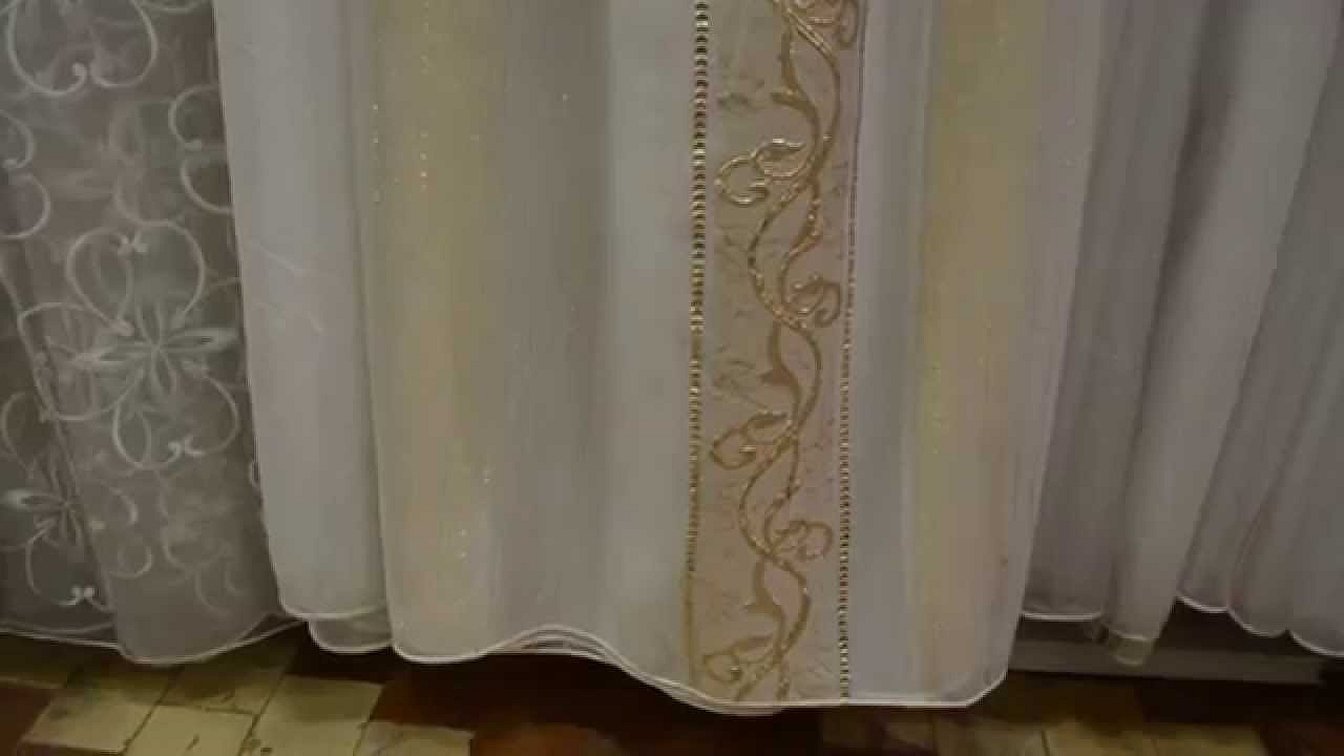
- "hand made style". Small bouquets or large flowers in a hand-made style have always been in demand, but as embroidery on tulle they appeared relatively recently, instantly becoming popular. Hand-made drawing can smoothly merge with the main color scheme, or it can stand out noticeably with the brightness and contrast of the patterns;
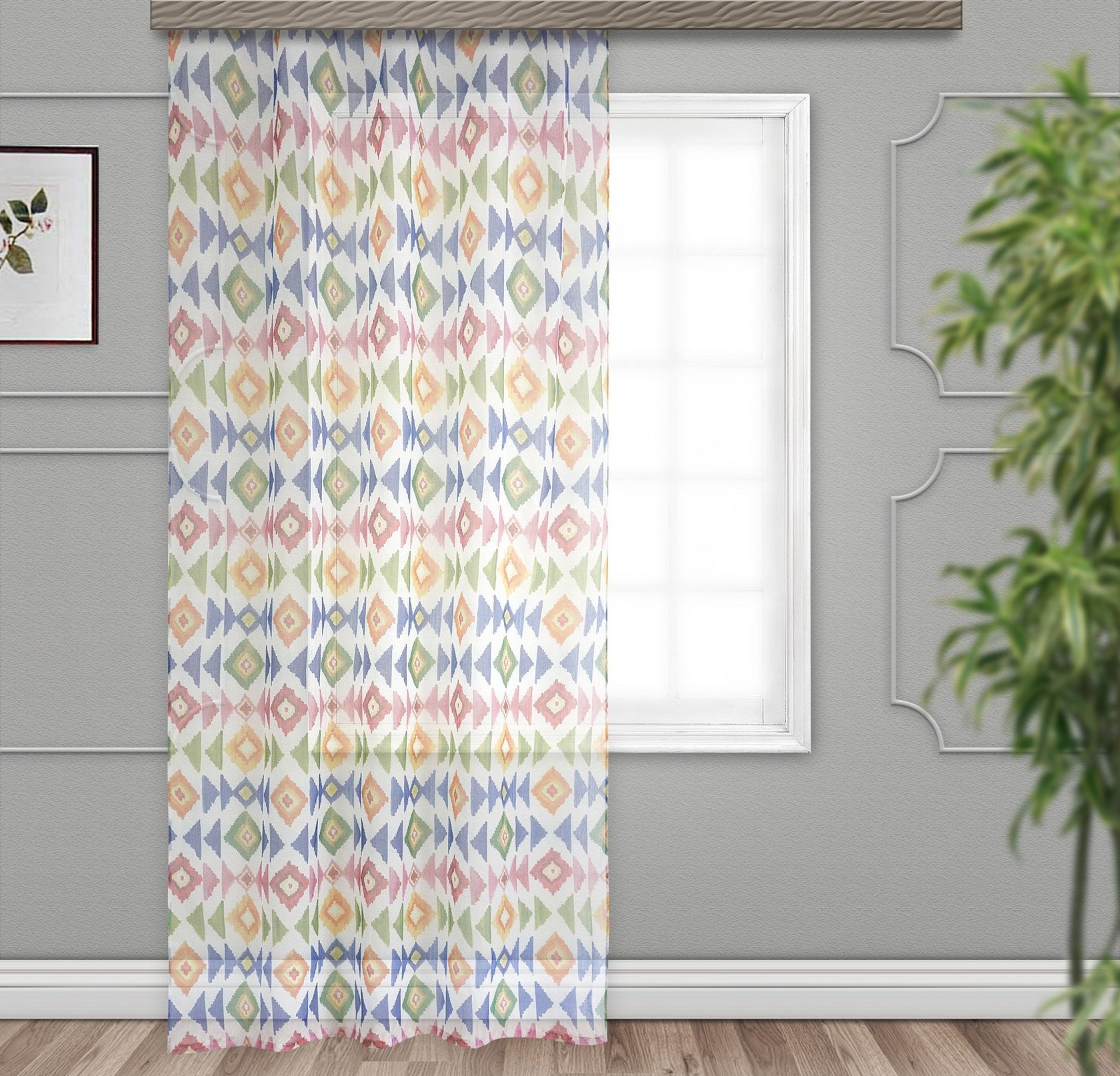
- ethnic motifs. Perhaps this is the only style that has absorbed such a huge variety of forms, colors and design options during its existence. Its peculiarity lies in the fact that the ethnic pattern combines elements and ornaments of almost all national costumes of the world. Each person will be able to find something native, close to themselves in it.
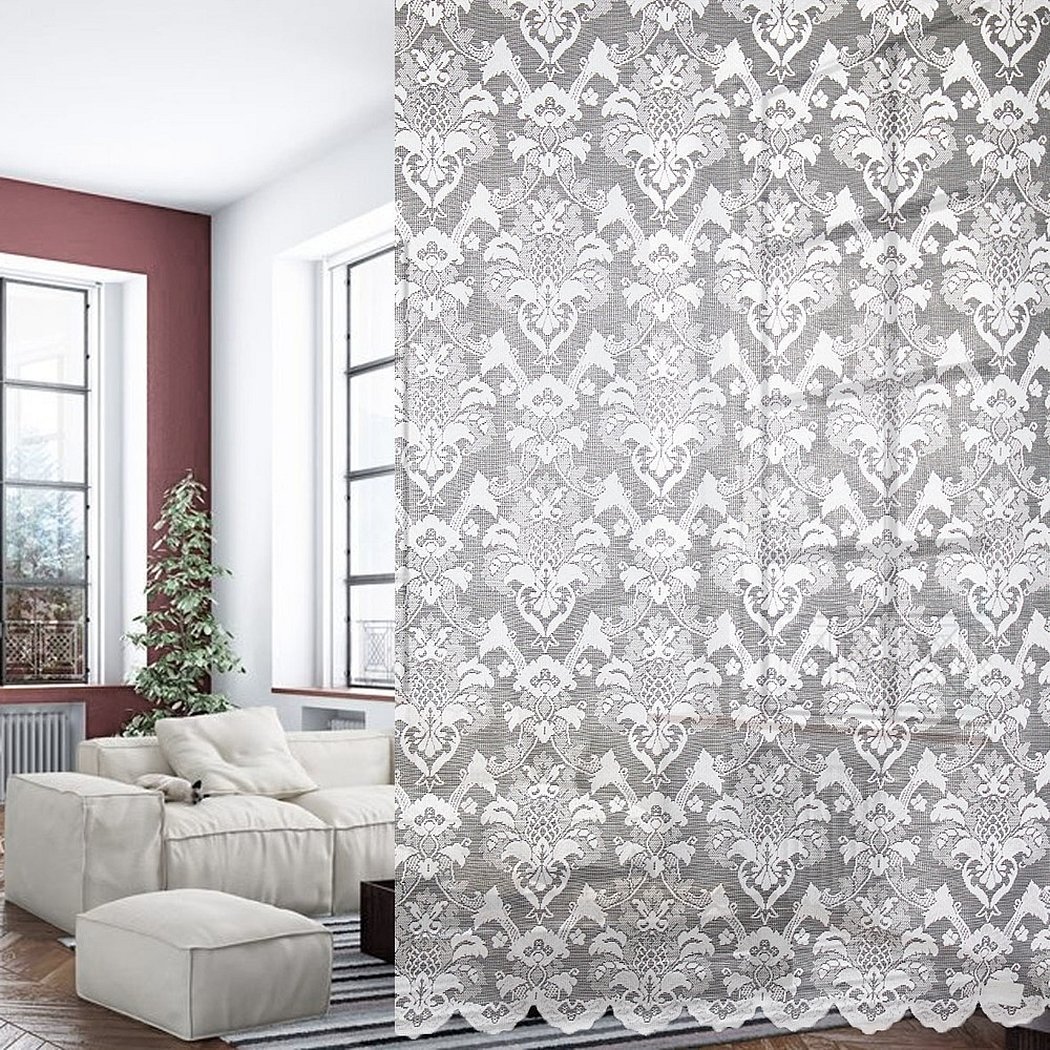
Application of decorative element in interiors of different styles
Curtains and tulle with embroidery appeared in the eighteenth century. At that time, it was often used in the following styles:
- classicism, renaissance or baroque. It is hard to imagine classical solutions in these motifs without airy and lush products, the basis of which were decorations in the form of plants and complex patterned ornaments, as if floating in the air;
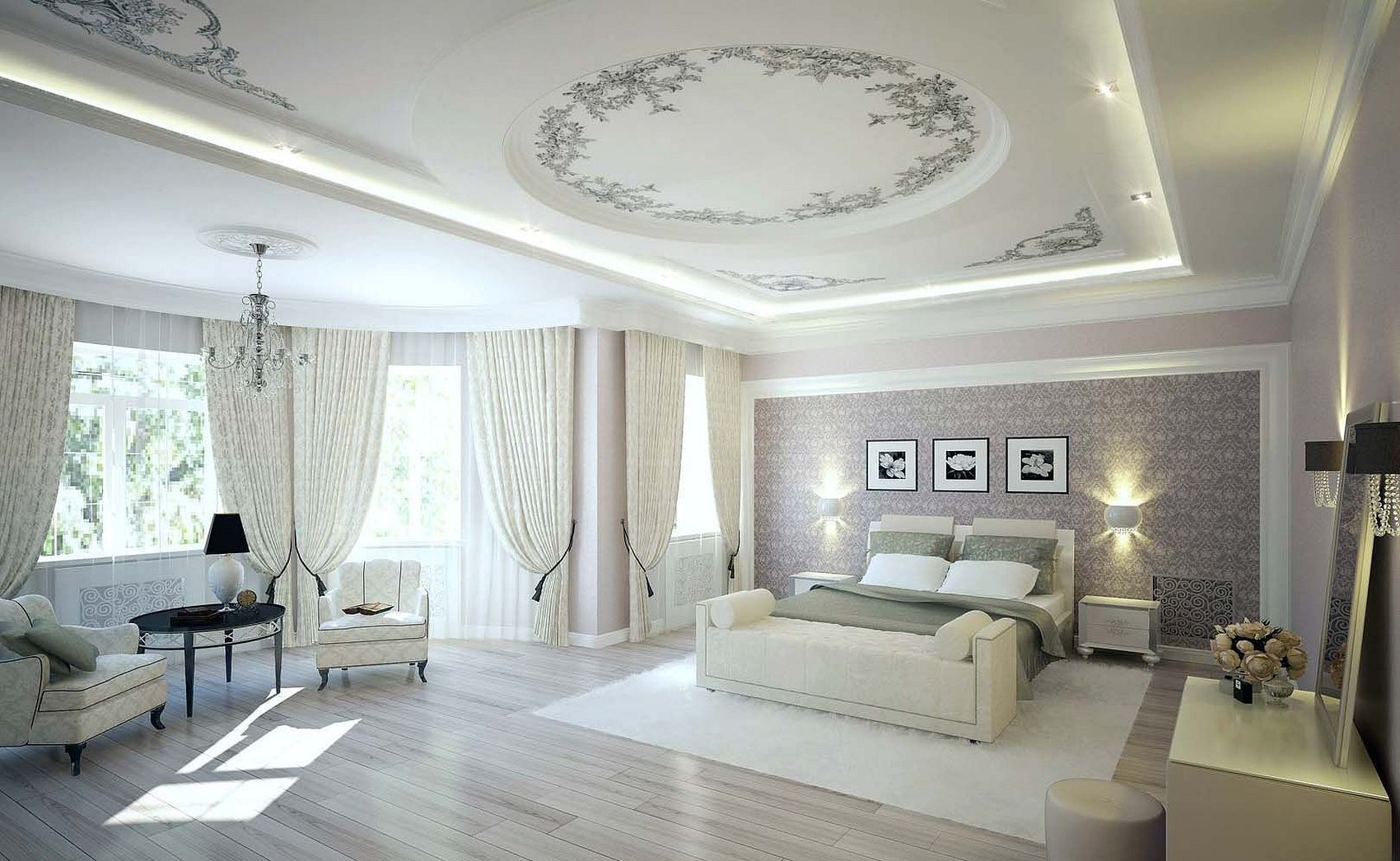
- Romanesque interior, eclecticism and empire. Such styles used large canvases with silver or gold embroidery. They are also characterized by the presence of a large coupon along the bottom of the air curtain;
- neoclassical style, neomodern and modern. Their feature was thin and graceful transitions. This concerned not only the products themselves, but also the patterns on the surface. The tulle ornament in neostyles is soft and has smooth and measured transitions, and does not use broken and sharp lines;
- country and ethnic. These trends also cannot do without embroidered curtains, using vegetation and fantasy motifs for the motifs.
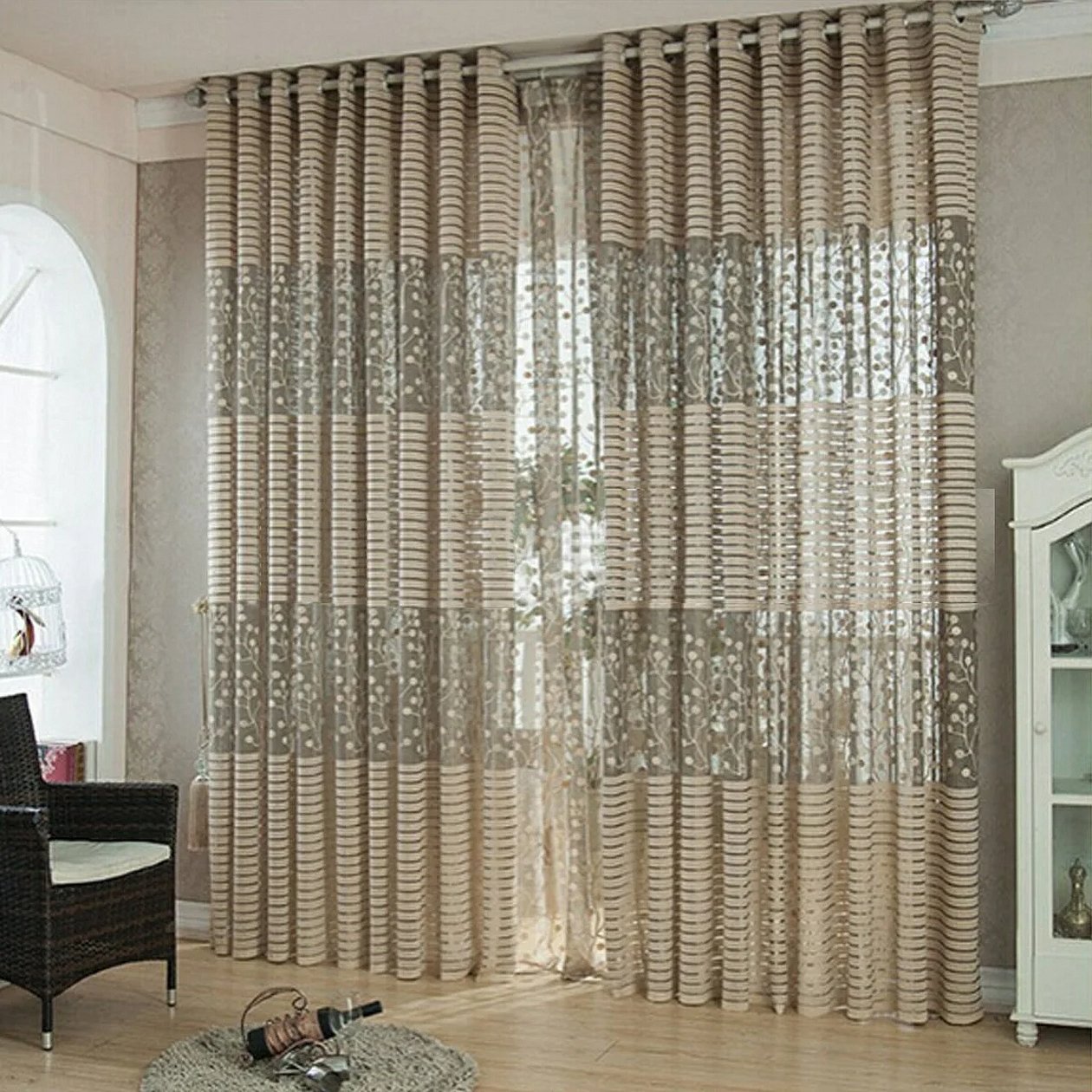
Important! Modern types are not very similar to what was used at the very birth of tulle as a decorative element. Despite this, it is possible to achieve harmony with modern interiors by using complex geometric patterns.
How to Choose the Perfect Embroidered Tulle
You can select the material and embroidery based on your own preferences and the overall interior of the room, as well as on fashion trends. Today, noble and complex patterns that are noticeably different from the color of the fabric itself are in demand. This means that literally everything can be applied to white or cream tulle fabric: patterns, flowers and other motifs.
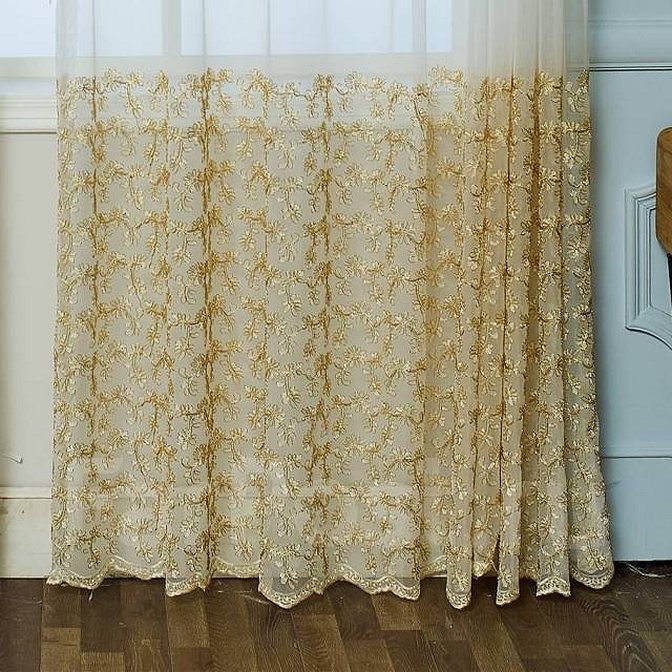
When choosing, it is also important to pay attention to the types of tulle. For embroidery with beads, beads and other elements, micro-mesh tulle from Turkey or France is suitable. Manufacturers from these countries make the base very light and thin. It consists of very small cells and resembles a regular mesh when approached. Despite the linen weave, the fabric remains translucent due to the use of particularly thin fibers.
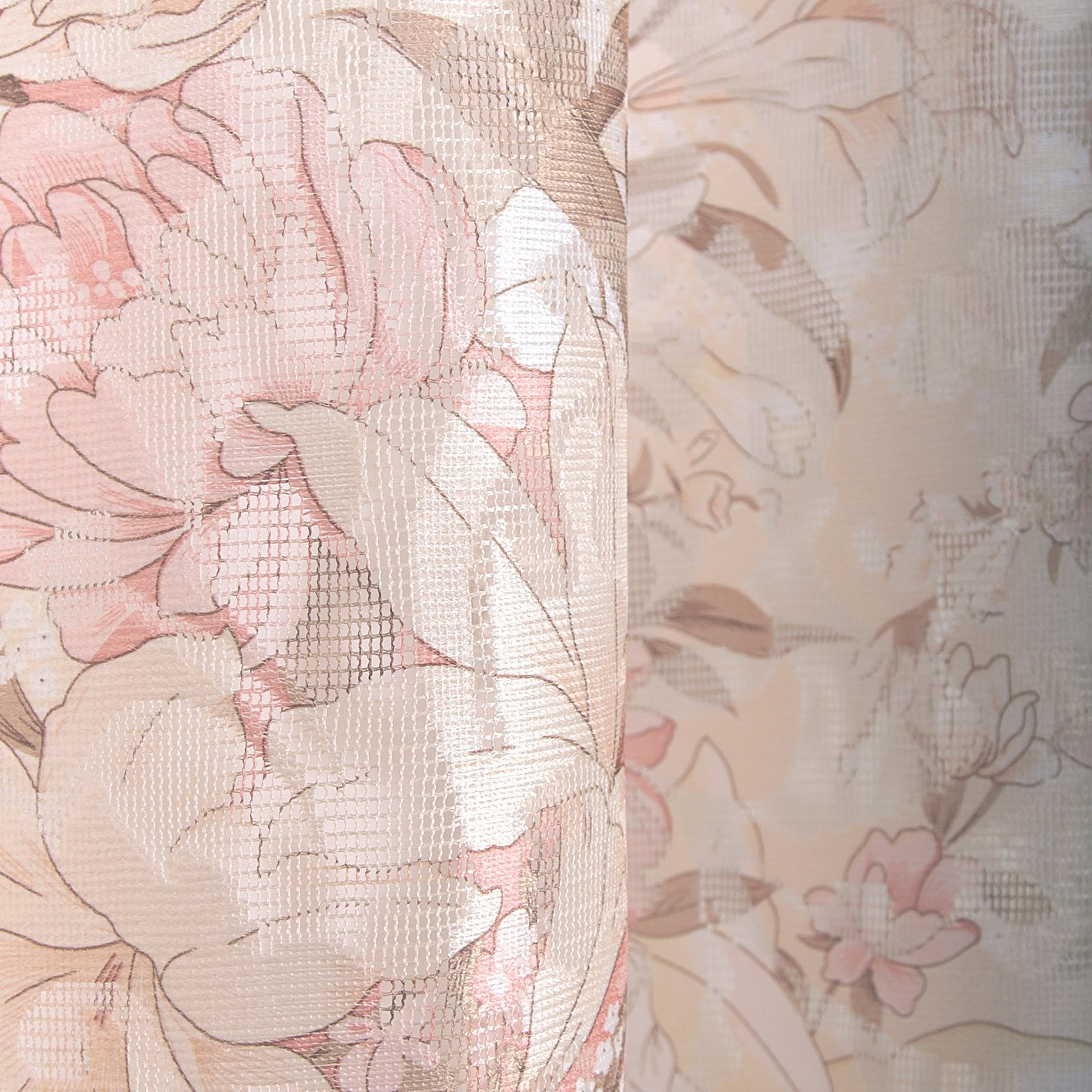
Is it possible to do it yourself?
Theoretically, you can learn to embroider on a mesh and transfer your skills to making curtain patterns with smaller cells. Moreover, you don’t need to have a lot of experience and all the skills to do this. But there is one snag: creating full-fledged patterns and ornaments for the entire length of the tulle in this way is difficult and time-consuming, and master classes on this topic on the Internet can be counted on the fingers of one hand.
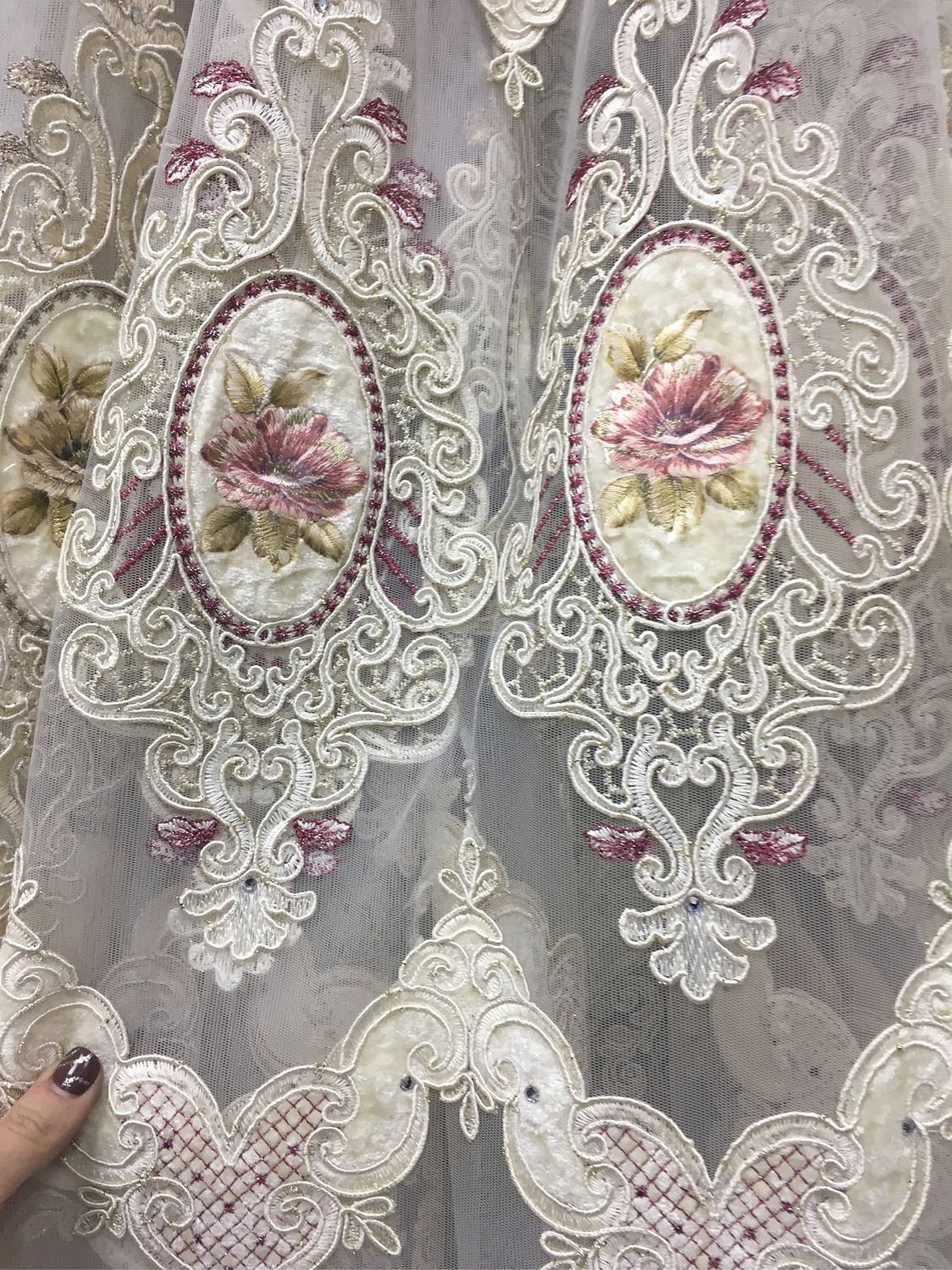
Turkish tulle: how to use and care for it
The popularity of Turkish tulle is explained by its high performance characteristics and ease of care. Despite this, the material is able to decorate any interior and bring its own zest to it.
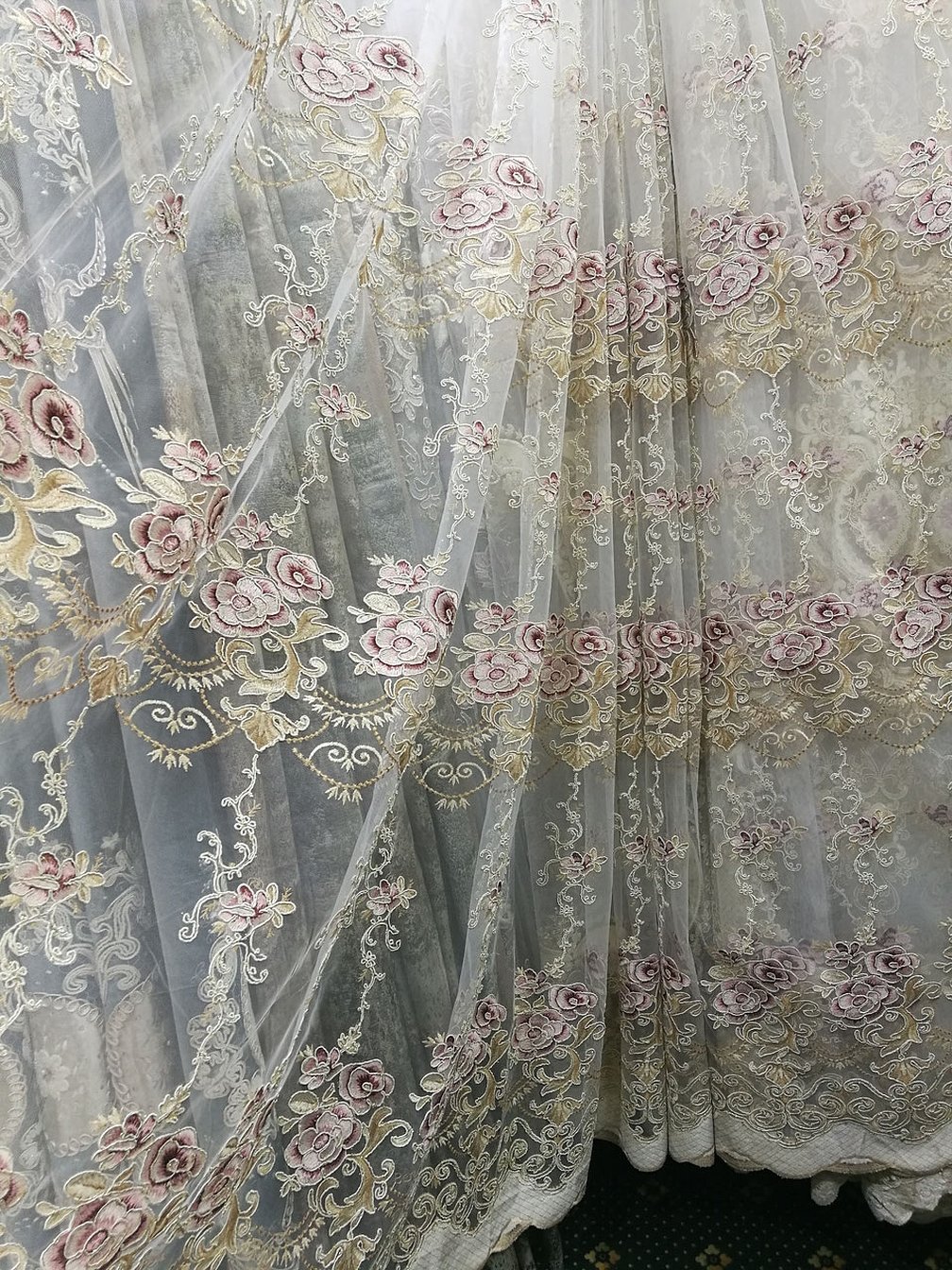
To prevent the tulle from losing its color and from getting damaged, it is necessary to soak it in slightly soapy water for 30 minutes. After that, the product should be taken out and washed by hand, hanging the fabric on the curtain rod in an almost dry state.
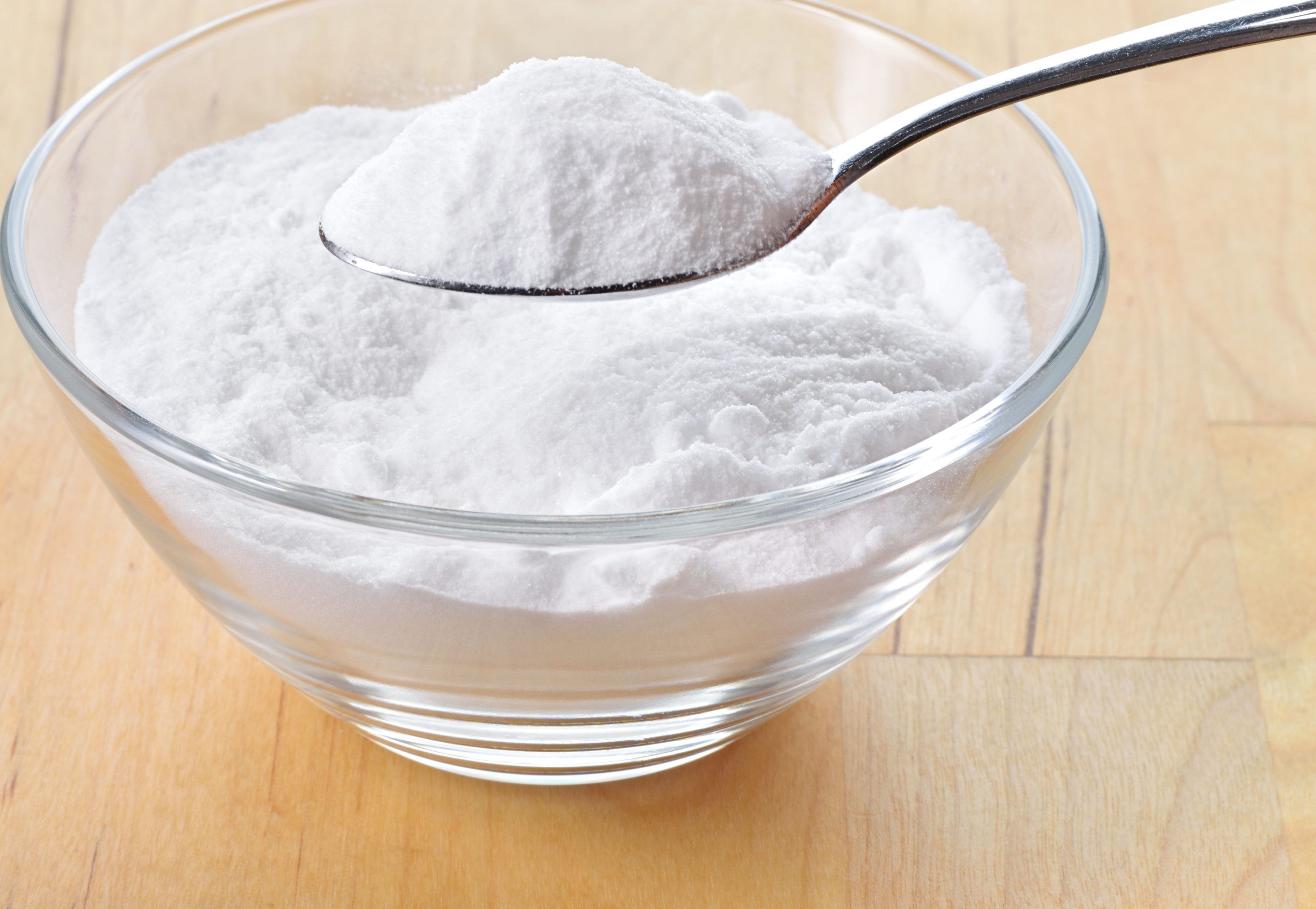
Important! During and after washing, the fabric must not be deformed. To do this, the water should not be heated to high temperatures, and the tulle should not be "boiled" over an open fire. It is recommended to always carefully study the product label before washing or drying.
The performance characteristics of Turkish textiles are explained by the following features:
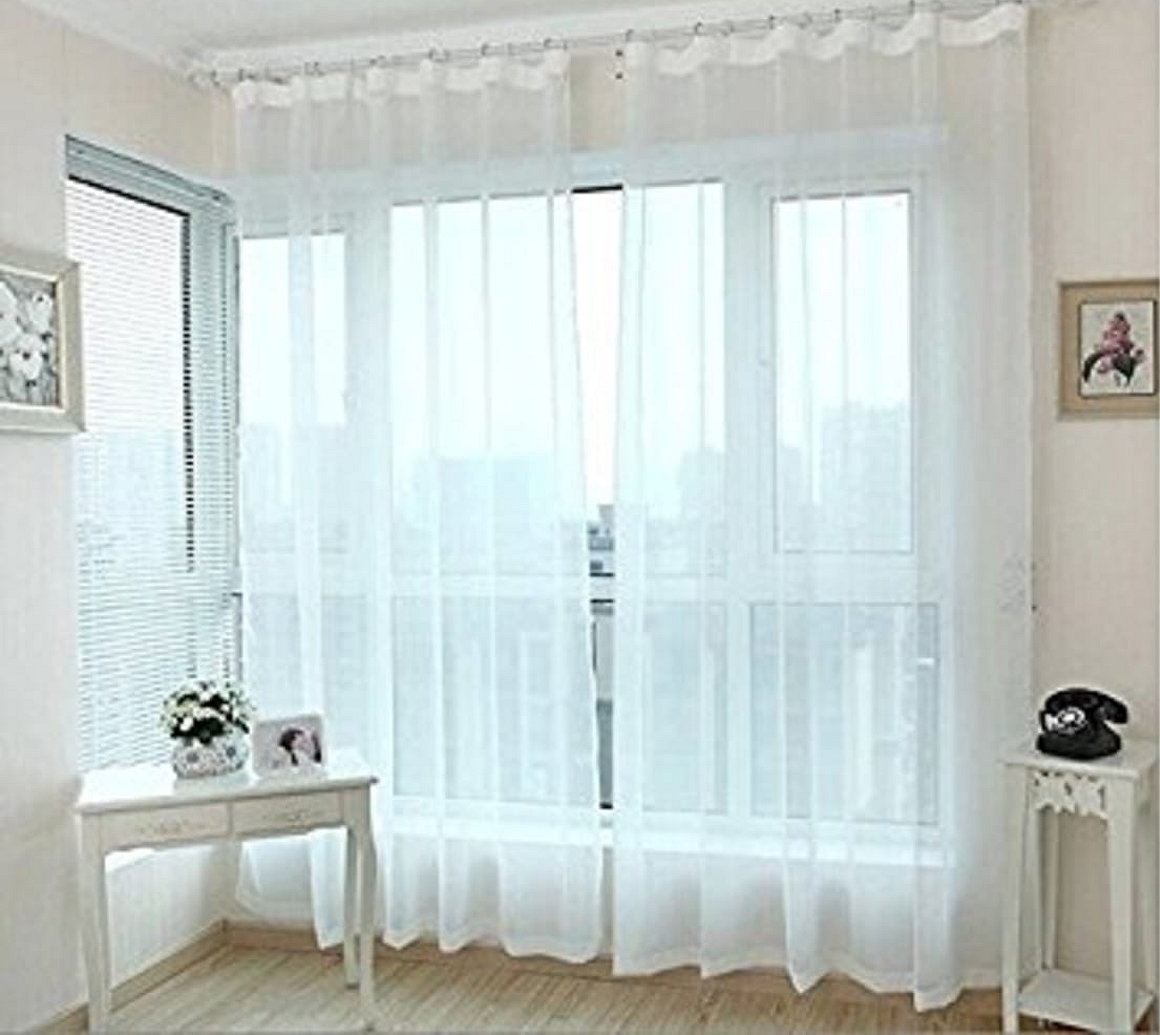
- a wide variety of materials used;
- high quality standards;
- low price and availability.
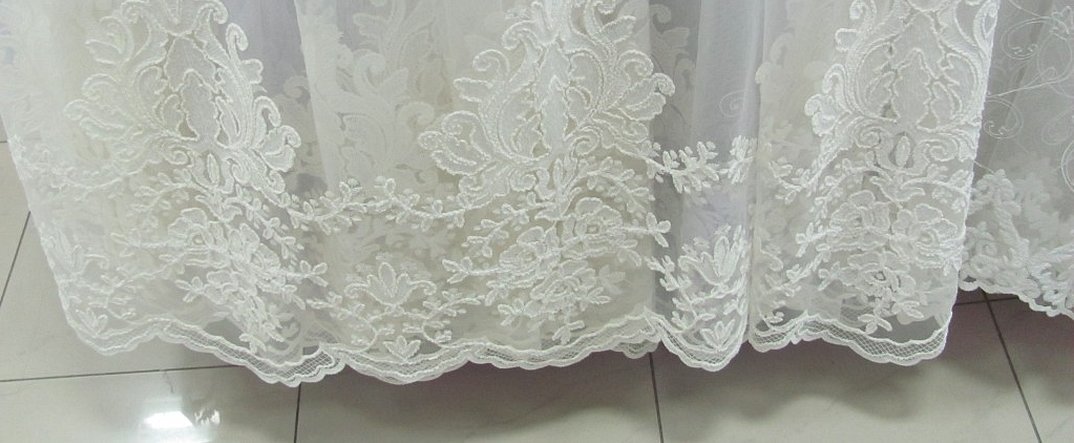
Manufacturers and prices
Today the market is overflowing with various offers in this area. You can easily choose Turkish, French or Russian textiles. The most popular manufacturers are:
- Altax. Material cost from 1,600 rubles per linear meter.
- ARIA. A cheaper material, costing from 1,200 rubles per meter.
- Gallery. Budget option for 1,000 rubles.
- Lila – 1,170 rubles per linear meter.
- Milano – 1300 rubles.
- Shanxing. The cheapest option costs up to 980 rubles.
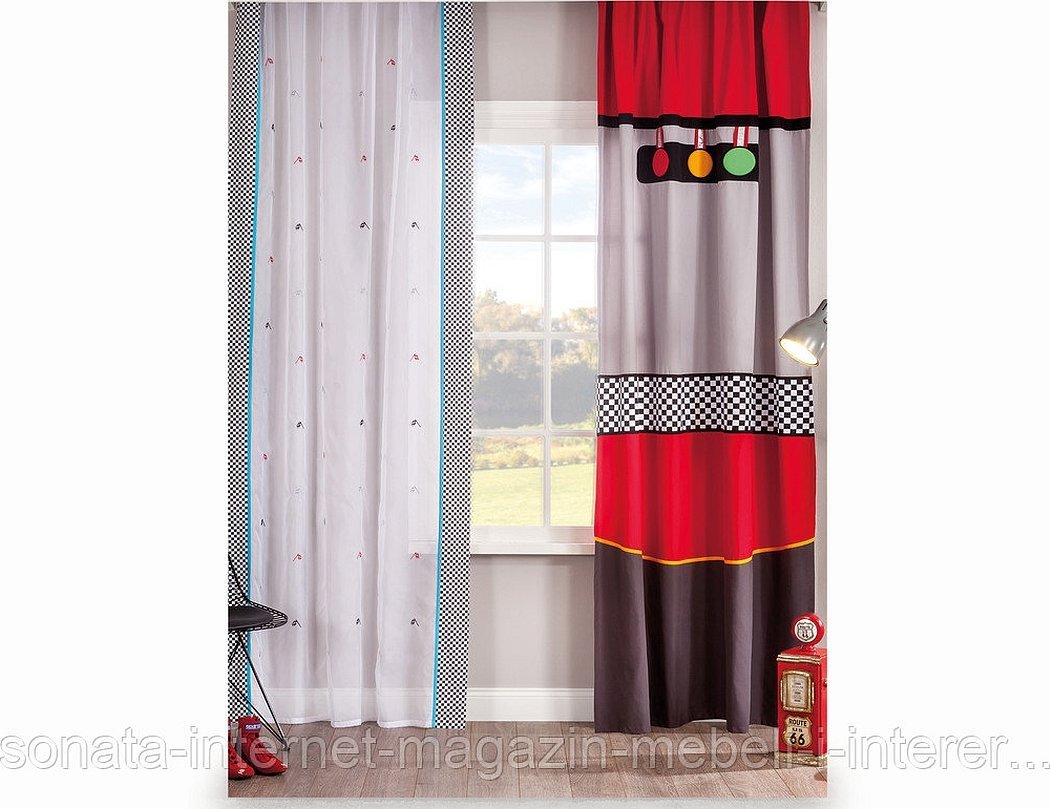
Thus, tulle and net curtains are integral attributes of the interior. If they are made with embroidery with stones, thread or ribbons, this additionally emphasizes the design. Products that ideally match the color of the overall composition look especially good.

